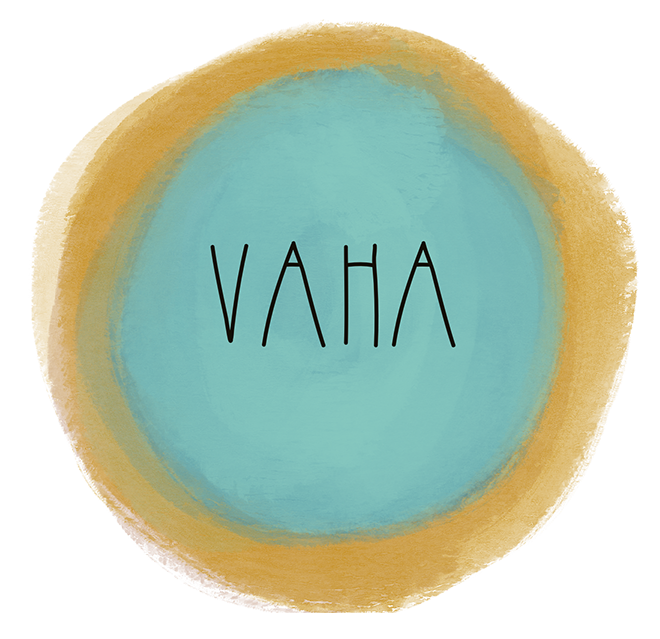Learning & mobility
As a result of my participation in the VAHA community, I have got to know many interesting people and organisations in Turkey and across Europe. Two of these, that I was interested in getting to know better, were Aktina Stathaki, from the VAHA’s Athens Hub, and Alden Jacobs, from the VAHA’s Nicosia Hub. I took the opportunity to apply for VAHA’s Learning & Mobility Grant to visit both, get to know their work better, and learn from them.
On 23 October 2021, I travelled from Porto to Athens to conduct a workshop at 1927 by invitation of Aktina Stathaki, a member of the VAHA’s Athens Hub in Phase 1. 1927 is an art and performance space for residencies, exhibitions, work-in-progress showcases, open rehearsals, workshops, discussions, readings and site-specific performances, located in the Kypseli neighbourhood. 1927 is run by Aktina Stathaki and Jerome Simeon, co-founders of the Between the Seas: Mediterranean Performing Arts, one of the organisations of the VAHA’s Athens Hub.
My workshop was titled “Deconstructing national symbols” and it was one of the activities of the Decolonizing Salon programme, coordinated by Aktina Stathaki, which was part of the Dëcoloиıze Hellάş initiative, that “call[ed] for an urgent re-viewing of the place of modern Greece in relation to geographies and genealogies of European colonialism”.
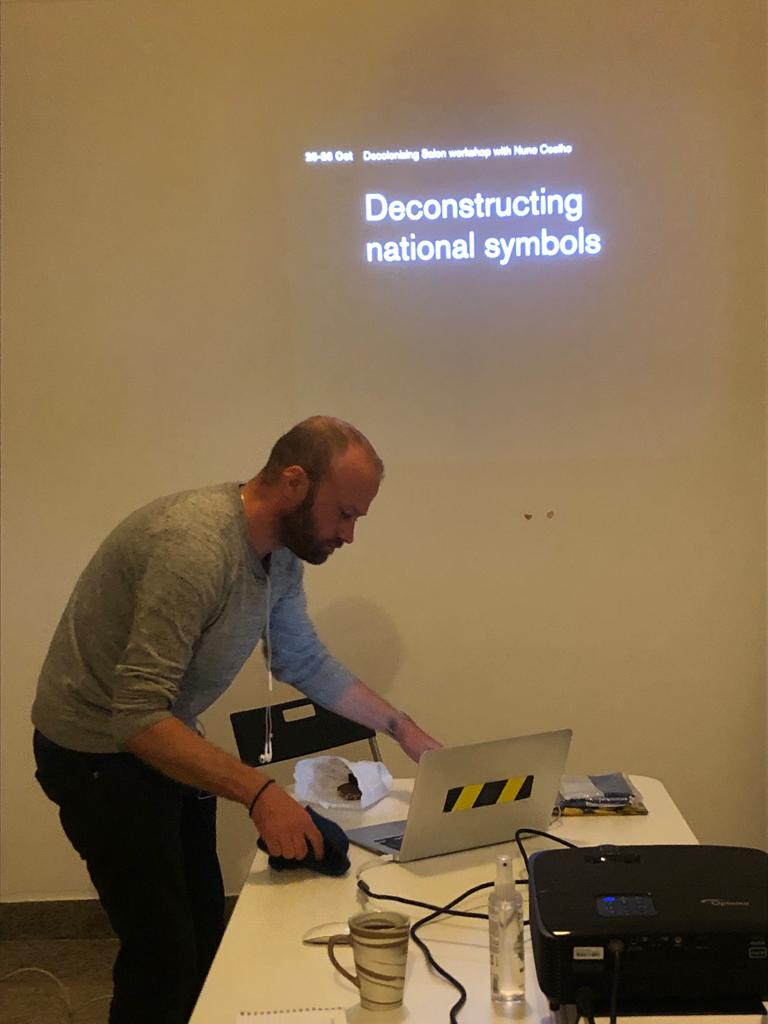
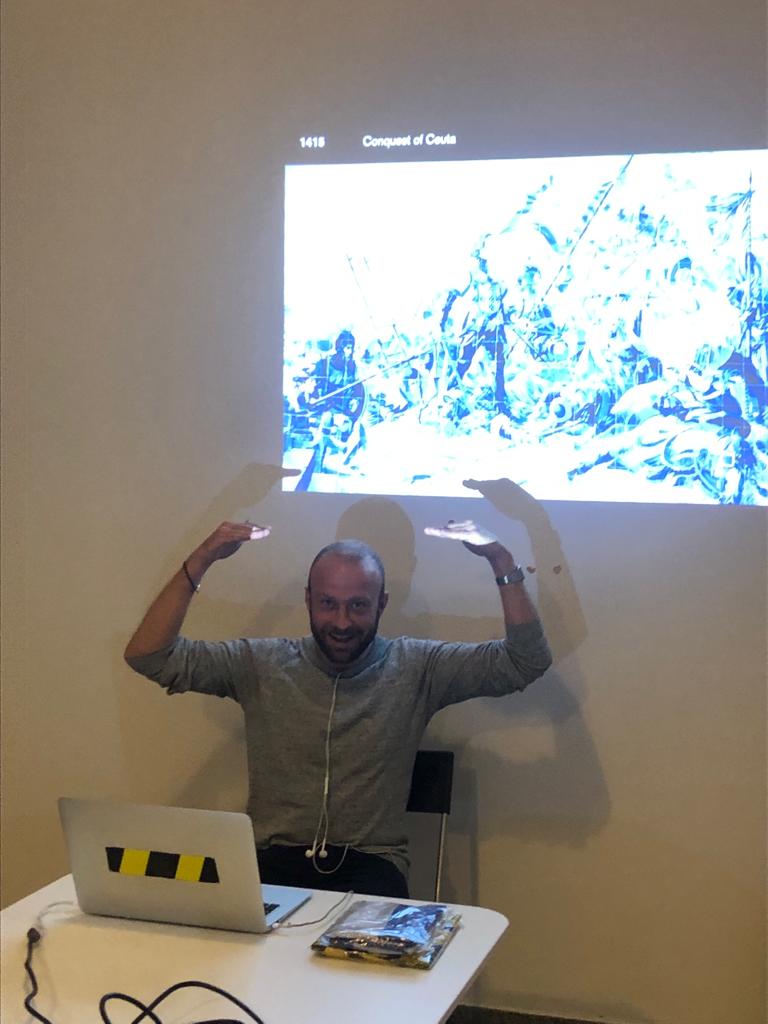
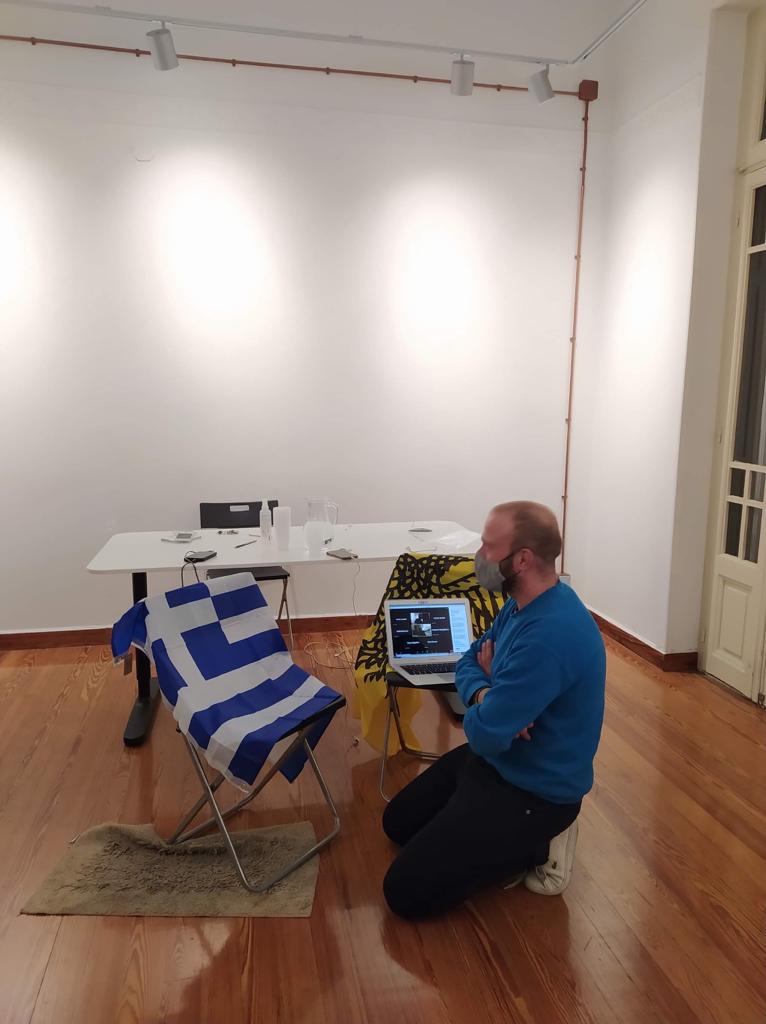
My workshop took place on two consecutive afternoons, on 25 and 26 October 2021. The first day was a lecture-based introduction to the theme, followed by a debate with contributions from a larger audience. The second day had a more hands-on approach, restricted to fewer participants but in a more intimate environment so that an in-depth discussion could be conducted. Participants were asked to bring an object from the Greek “national” visual culture so that it could be “deconstructed” by the debate of ideas between the participants, moderated by me. Both days were conducted in a hybrid format: some participants were present in person in the room, while others followed the discussion online.
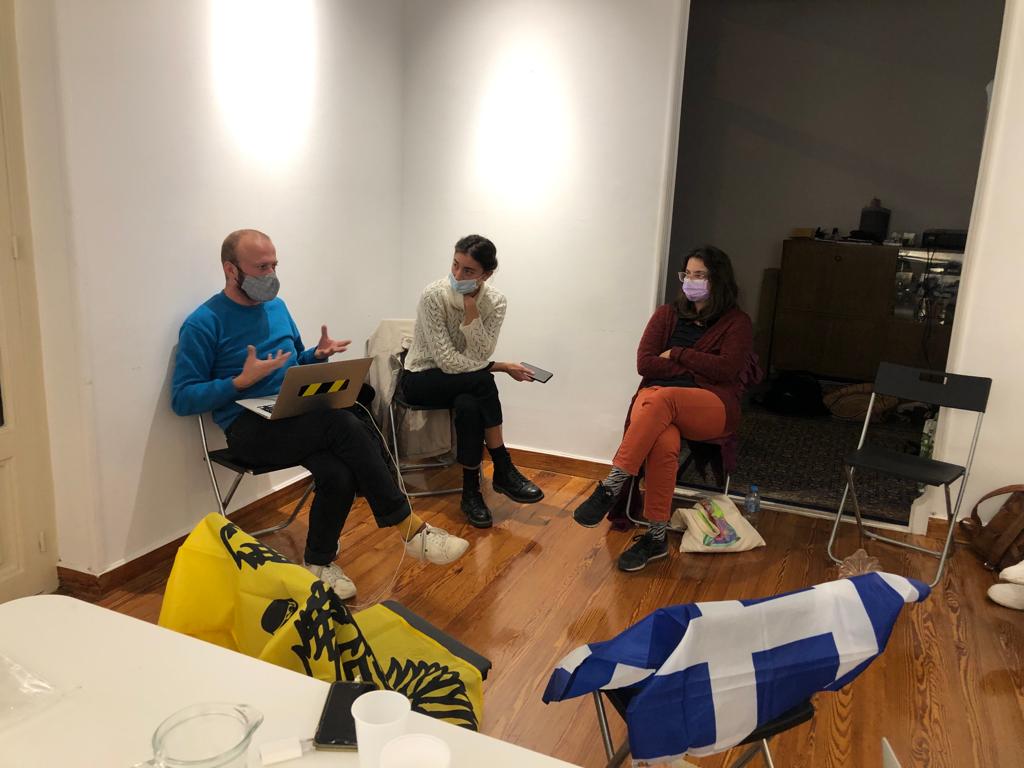
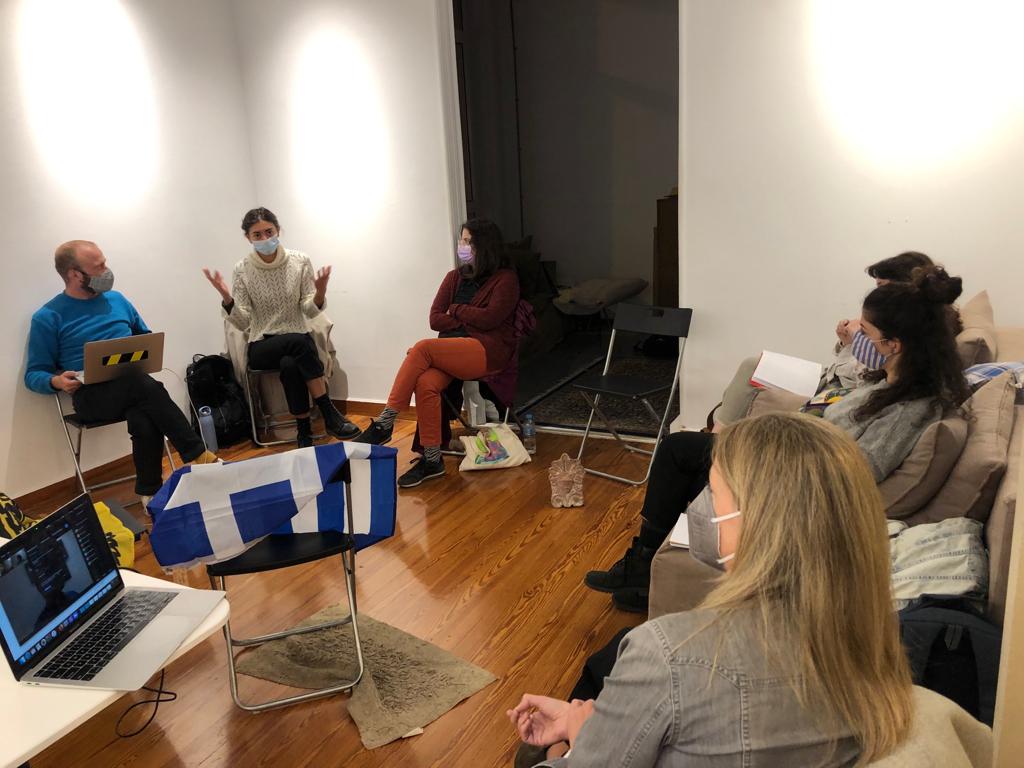
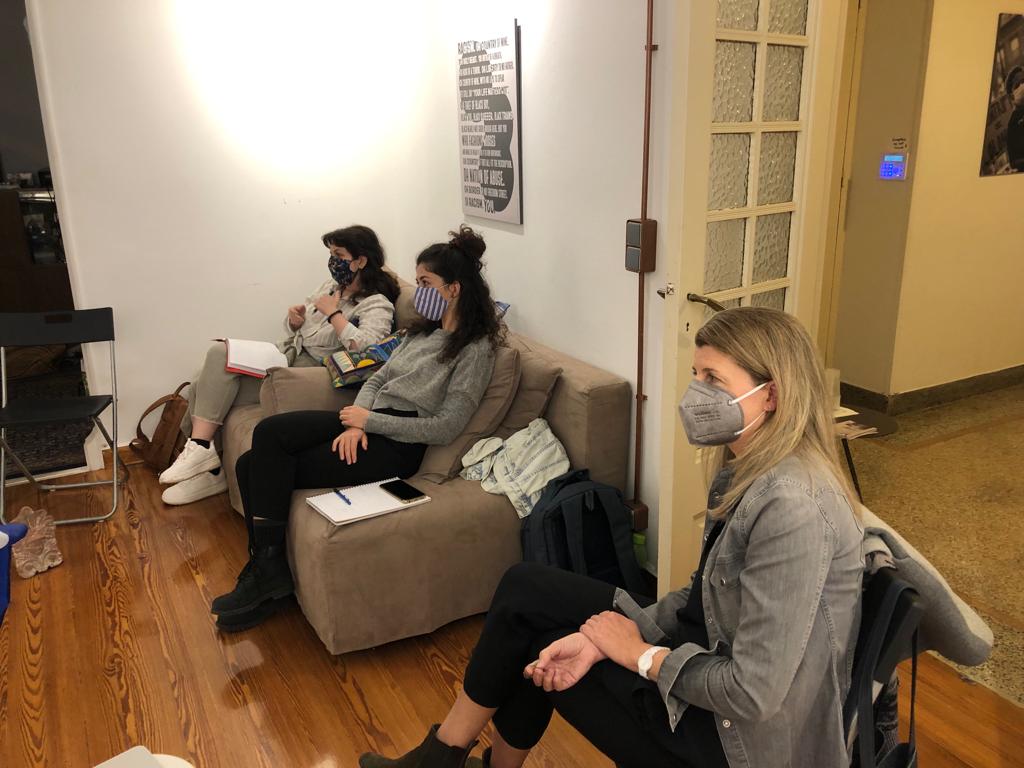
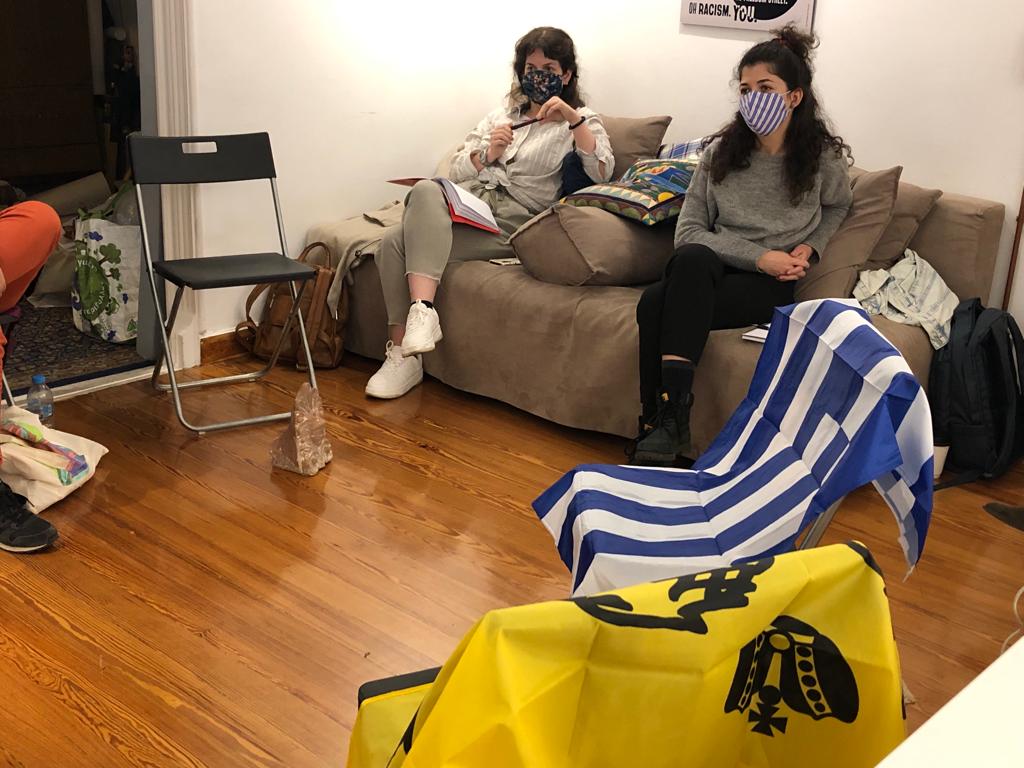
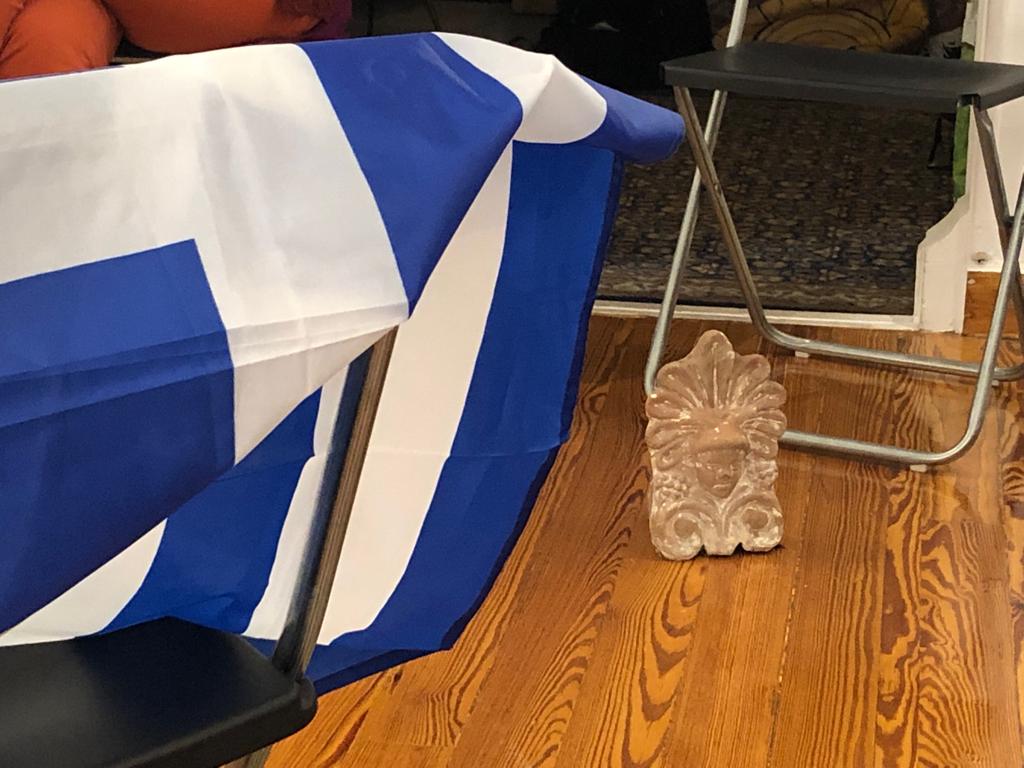
The following week, I was invited by Aktina Stathaki to participate remotely in the session “Decolonize the Salon, Reflections”, with her presence and of other members of the Decolonize Salon, within the symposium organised by the Dëcoloиıze Hellάş initiative.
On the days following the workshop, I took some time to visit a few museums and art spaces in Athens, including a visit with Aktina Stathaki to the AB7: Eclipse – Athens Biennale of Contemporary Art, the biggest international festival of contemporary art in Greece, held every two years in Athens. Our visit to the Biennale, where I was introduced to some Greek artists by Aktina Stathaki, took place on 27 October 2021.
After my stay in Athens, as the VAHA Scale-up Meeting in Antalya, Turkey, was taking place in a week’s time, instead of returning back to Portugal, I decided to visit the VAHA’s Nicosia Hub in Cyprus. On 1 November 2021, I flew to Cyprus, where I took some days to learn from the social and political context of the partition of the island. I’ve visited several museums, monuments, art spaces, and other places related to collective memory on both sides of the United Nations Buffer Zone. Of these, I highlight the two Museums of the National Struggle, one on the north side and the other on the south side, on the same day.
On 7 November 2021, I’ve met Alden Jacobs and Marina Neophytou from Visual Voices, one of the organisations of the VAHA’s Nicosia Hub. Visual Voices is “a non-profit organisation supporting youth artists from communities affected by violent conflict” that “promote[s] the creation of contemporary visual art that reflects the desire for positive social change and build the space for the ideas to be shared”.
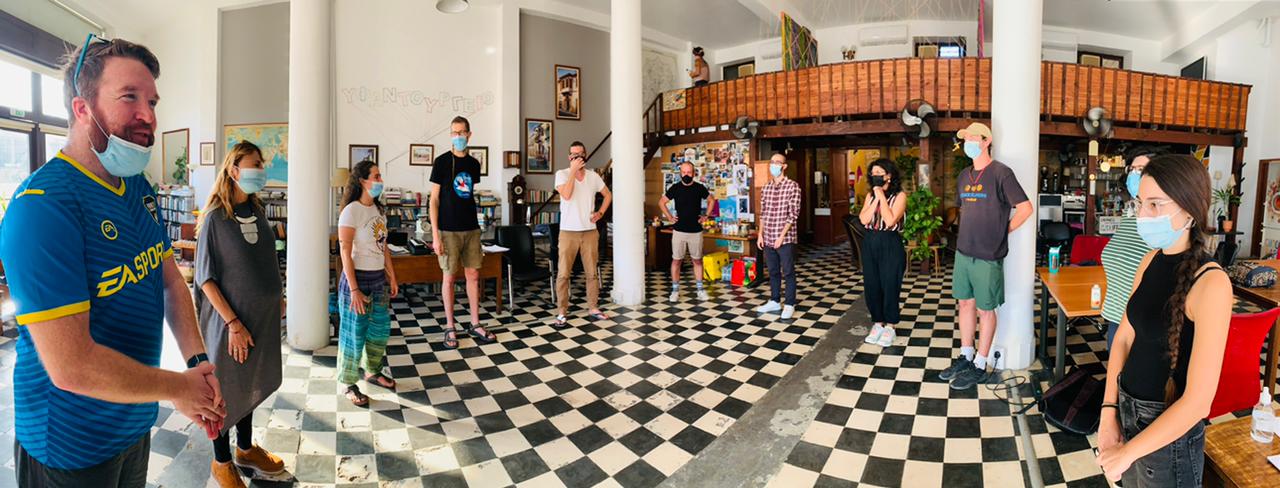
How art can foster positive social and political change?
Nuno Coelho’s visit to Athens and Nicosia
29.03.2023
VAHA’s Porto Hub participant Nuno Coelho from RAMPA travelled to Athens and Nicosia with the support of VAHA’s Learning & Mobility Grant.* In this story, Nuno shares his report on the activities he participated in and his observations about the use of arts in the social and political contexts that he encountered.
As a result of my participation in the VAHA community, I have got to know many interesting people and organisations in Turkey and across Europe. Two of these, that I was interested in getting to know better, were Aktina Stathaki, from the VAHA’s Athens Hub, and Alden Jacobs, from the VAHA’s Nicosia Hub. I took the opportunity to apply for VAHA’s Learning & Mobility Grant to visit both, get to know their work better, and learn from them.
On 23 October 2021, I travelled from Porto to Athens to conduct a workshop at 1927 by invitation of Aktina Stathaki, a member of the VAHA’s Athens Hub in Phase 1. 1927 is an art and performance space for residencies, exhibitions, work-in-progress showcases, open rehearsals, workshops, discussions, readings and site-specific performances, located in the Kypseli neighbourhood. 1927 is run by Aktina Stathaki and Jerome Simeon, co-founders of the Between the Seas: Mediterranean Performing Arts, one of the organisations of the VAHA’s Athens Hub.
My workshop was titled “Deconstructing national symbols” and it was one of the activities of the Decolonizing Salon programme, coordinated by Aktina Stathaki, which was part of the Dëcoloиıze Hellάş initiative, that “call[ed] for an urgent re-viewing of the place of modern Greece in relation to geographies and genealogies of European colonialism”.



My workshop took place on two consecutive afternoons, on 25 and 26 October 2021. The first day was a lecture-based introduction to the theme, followed by a debate with contributions from a larger audience. The second day had a more hands-on approach, restricted to fewer participants but in a more intimate environment so that an in-depth discussion could be conducted. Participants were asked to bring an object from the Greek “national” visual culture so that it could be “deconstructed” by the debate of ideas between the participants, moderated by me. Both days were conducted in a hybrid format: some participants were present in person in the room, while others followed the discussion online.





The following week, I was invited by Aktina Stathaki to participate remotely in the session “Decolonize the Salon, Reflections”, with her presence and of other members of the Decolonize Salon, within the symposium organised by the Dëcoloиıze Hellάş initiative.
On the days following the workshop, I took some time to visit a few museums and art spaces in Athens, including a visit with Aktina Stathaki to the AB7: Eclipse – Athens Biennale of Contemporary Art, the biggest international festival of contemporary art in Greece, held every two years in Athens. Our visit to the Biennale, where I was introduced to some Greek artists by Aktina Stathaki, took place on 27 October 2021.
After my stay in Athens, as the VAHA Scale-up Meeting in Antalya, Turkey, was taking place in a week’s time, instead of returning back to Portugal, I decided to visit the VAHA’s Nicosia Hub in Cyprus. On 1 November 2021, I flew to Cyprus, where I took some days to learn from the social and political context of the partition of the island. I’ve visited several museums, monuments, art spaces, and other places related to collective memory on both sides of the United Nations Buffer Zone. Of these, I highlight the two Museums of the National Struggle, one on the north side and the other on the south side, on the same day.
On 7 November 2021, I’ve met Alden Jacobs and Marina Neophytou from Visual Voices, one of the organisations of the VAHA’s Nicosia Hub. Visual Voices is “a non-profit organisation supporting youth artists from communities affected by violent conflict” that “promote[s] the creation of contemporary visual art that reflects the desire for positive social change and build the space for the ideas to be shared”.

On the same day, I participated in the workshop “Learning with laughter: Social circus workshop” coordinated by Clowns Without Borders, a Belgium-based NGO that uses circus art and games for informal learning of diversity and openness. Clowns Without Borders was invited by Visual Voices to conduct their workshop at Yfantourgeio, the other member of the VAHA’s Nicosia Hub, in Nicosia.
Later, on the same day, I participated remotely in the session “Decolonize the Salon, Reflections”, as mentioned previously.
Two days later, on 9 November 2021, I flew to Antalya, Turkey, to participate in the VAHA Scale-up Meeting, which took place in Çıralı, as a member of the VAHA’s Porto hub.
As a result of my participation in the VAHA community, getting to know in-person Aktina Stathaki and her work was one of the things I was looking for the most, as in her work, she works around the concept of decolonisation, using art as a tool for deconstruct notions of national identity and coloniality. The same applies to getting to know in-person Visual Voices members and their work, as their work is pretty much aligned with the type of projects I develop, using arts as a medium to deal with complex social and political contexts, situations, and environments. Having the opportunity to visit two VAHA hubs (Athens and Nicosia) on a single trip, followed by my participation in the VAHA Scale-up Meeting in Çıralı, was definitely fruitful and inspiring to me and to my work. I am sure future collaborations will stem from these newly formed networks, solidified by my visits. I would like to thank the VAHA programme for creating the space for these transnational networks to happen!
Text by Nuno Coelho
*The Learning & Mobility Grant aims to foster knowledge and practice exchange among VAHA participants.
Later, on the same day, I participated remotely in the session “Decolonize the Salon, Reflections”, as mentioned previously.
Two days later, on 9 November 2021, I flew to Antalya, Turkey, to participate in the VAHA Scale-up Meeting, which took place in Çıralı, as a member of the VAHA’s Porto hub.
As a result of my participation in the VAHA community, getting to know in-person Aktina Stathaki and her work was one of the things I was looking for the most, as in her work, she works around the concept of decolonisation, using art as a tool for deconstruct notions of national identity and coloniality. The same applies to getting to know in-person Visual Voices members and their work, as their work is pretty much aligned with the type of projects I develop, using arts as a medium to deal with complex social and political contexts, situations, and environments. Having the opportunity to visit two VAHA hubs (Athens and Nicosia) on a single trip, followed by my participation in the VAHA Scale-up Meeting in Çıralı, was definitely fruitful and inspiring to me and to my work. I am sure future collaborations will stem from these newly formed networks, solidified by my visits. I would like to thank the VAHA programme for creating the space for these transnational networks to happen!
Text by Nuno Coelho
*The Learning & Mobility Grant aims to foster knowledge and practice exchange among VAHA participants.


